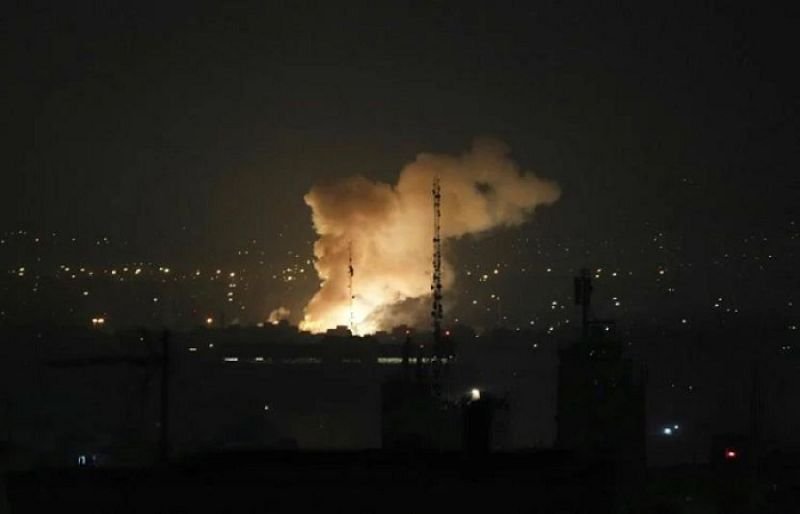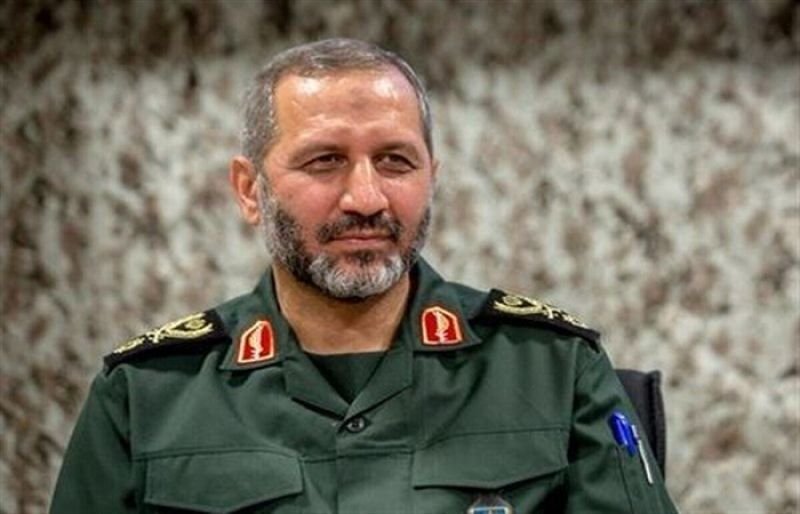Iranian media and witnesses reported explosions including at the country’s main uranium enrichment facility at Natanz, while Israel declared a state of emergency in anticipation of retaliatory missile and drone strikes.
Israel’s military said Iran launched about 100 drones toward Israel on Friday and that it was making an effort to shoot them down.
“Iran launched approximately 100 UAVs towards Israeli territory, which we are working to intercept,” military spokesman Brigadier General Effie Defrin told journalists.
He added that Israel’s strikes on Iran involved 200 fighter jets striking about 100 targets across Iran.
Iran’s elite Revolutionary Guards corps said its top commander, Hossein Salami, was killed and state media reported the unit’s headquarters in Tehran had been hit.
Several children had been killed in a strike on a residential area in the capital, it said.
“We are at a decisive moment in Israel’s history,” Israeli Prime Minister Benjamin Netanyahu said in a recorded video message.
“Moments ago Israel launched Operation Rising Lion, a targeted military operation to roll back the Iranian threat to Israel’s very survival. This operation will continue for as many days as it takes to remove this threat.”
Iran’s Supreme Leader Ayatollah Ali Khamenei said in a statement that Israel had “unleashed its wicked and bloody” hand in a crime against Iran and that it would receive “a bitter fate for itself”.
An Israeli military official said Israel was striking “dozens” of nuclear and military targets including the facility at Natanz in central Iran. The official said Iran had enough material to make 15 nuclear bombs within days.
The United States said it had no part in the operation, which raises the risk of a fresh escalation in tensions in the Middle East, a major oil producing region.
Alongside extensive air strikes, Israel’s Mossad spy agency led a series of covert sabotage operations inside Iran, Axios reported, citing a senior Israeli official. These operations were aimed at damaging Irans strategic missile sites and its air defence capabilities.
Iranian state media reported that at least two nuclear scientists, Fereydoun Abbasi and Mohammad Mehdi Tehranchi, were killed in Israeli strikes in Tehran.
The UN nuclear watchdog said that Iranian authorities told it that no increase in radiation levels have been observed at the Natanz uranium enrichment site following Israeli strikes.
“Iranian authorities have informed the IAEA… that no increase in radiation levels has been observed at the Natanz site,” the International Atomic Energy Agency said in a post on X, after earlier confirming that the facility was “among targets” of the strikes.
It added that Iran’s only nuclear power plant in the southern port city of Bushehr had not been targeted.
Tel Aviv’s Ben Gurion Airport was closed until further notice, and Israel’s air defence units stood at high alert for possible retaliatory strikes from Iran.
“Following the pre-emptive strike by the State of Israel against Iran, a missile and UAV (drone) attack against the State of Israel and its civilian population is expected in the immediate time frame,” Defence Minister Israel Katz said in a statement.
Israeli military Chief of Staff Eyal Zamir said tens of thousands of soldiers had been called up and “prepared across all borders”.
“We are amidst a historic campaign unlike any other. This is a critical operation to prevent an existential threat, by an enemy who is intent on destroying us,” he said.
Israeli Minister Gideon Saar was holding “marathon of calls” with counterparts around the world regarding Israel’s attack on Iran, the foreign ministry said in a statement.
Pakistan was among several countries and international actors which condemned Israel’s strikes, with the Foreign Office calling it “unjustified and illegitimate aggression by Israel.”
Jordan and Iraq announced the closure of their airspace and grounded all flights, with Amman vowing it would not allow any violations of its airspace.
“The kingdom’s airspace is temporarily closed, and air traffic suspended for all aircraft – incoming, outgoing and in transit, as a precaution against any risks resulting from the regional escalation,” the Jordanian civil aviation authority said in a statement.
“Jordan has not and will not allow any violation of its airspace, reaffirming that the Kingdom will not be a battleground for any conflict,” government spokesperson Mohammad Momani told AFP.
Iraq, which borders Iran, also closed its airspace on Friday. “The ministry of transport closes Iraqi airspace and suspends air traffic at all Iraqi airports,” the Iraq News Agency reported.
US not involved:
US President Donald Trump said that Iran cannot have a nuclear bomb and that the US was hoping to get back to the negotiating table, in an interview with Fox News after the start of the Israeli air strikes on Iran.
“We will see,” Fox News reporter Jennifer Griffin quoted Trump as saying in a post on X.
Trump would convene a meeting of the National Security Council on Friday morning, the White House said. He had said on Thursday an Israeli strike on Iran “could very well happen” but reiterated his hopes for a peaceful resolution.
The US military is planning for the full range of contingencies in the Middle East, including the possibility that it might have to help evacuate American civilians, a US official told Reuters.
Iran’s armed forces spokesperson said Israel and its chief ally the United States would pay a “heavy price” for the attack, accusing Washington of providing support for the operation.
While the US tried to distance itself from Israel’s military operation, an Israeli official told public broadcaster Kan that Israel had coordinated with Washington on Iran.
US Secretary of State Marco Rubio said the United States was not involved in the strikes and Tel Aviv had acted unilaterally for self-defence.
“We are not involved in strikes against Iran and our top priority is protecting American forces in the region,” Rubio said in a statement.
“Let me be clear: Iran should not target US interests or personnel,” he added.
The State Department issued an advisory saying that all US government employees in Israel and their family members should “shelter in place until further notice”.
The attacks triggered sharp falls in stock prices in Asian trade on Friday, led by a selloff in US futures, while oil prices jumped as investors scurried to safe havens such as gold and the Swiss franc.
UN Secretary-General Antonio Guterres condemned any military escalation in the Middle East, said deputy UN spokesperson Farhan Haq.
“The Secretary-General asks both sides to show maximum restraint, avoiding at all costs a descent into deeper conflict, a situation that the region can hardly afford,” Haq said.
Nuclear talks:
US and Iranian officials were scheduled to hold a sixth round of talks on Tehran’s escalating uranium enrichment programme in Oman on Sunday, according to officials from both countries and their Omani mediators.
A US official said those talks were still scheduled to proceed despite the Israeli attack.
The Israeli military said on Friday that it was forced to act based on new intelligence information showing that Iran was “approaching the point of no return” in the development of a nuclear weapon.
“In recent months, this program has accelerated significantly, bringing the regime significantly closer to obtaining a nuclear weapon,” it said in a statement, without disclosing the purported evidence.
A source familiar with US intelligence reports said there had been no recent change in the US intelligence assessment that Iran was not building a nuclear weapon and that Khamenei had not authorised the restarting of the nuclear weapons programme that was shuttered in 2003.
#Israeli #airstrikes #target #Irans #nuclear #missile #infrastructure #tensions #soar



